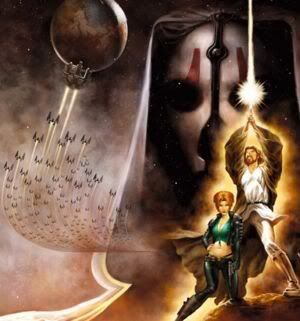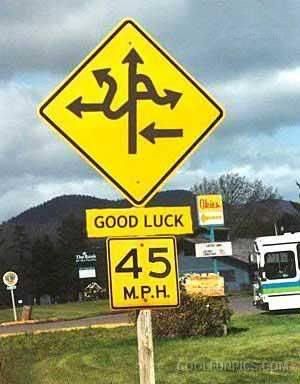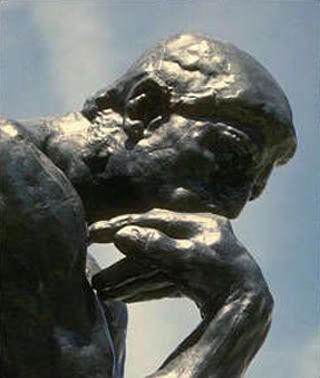
Yesterday I talked about not being afraid of starting over. Today, I think it’s appropriate to discuss something one should be afraid of when it comes to writing, or performing in general. It’s the root of that thing they call ‘stage fright,’ at least in my experience.
You should be afraid of your audience.
Specifically, you should be afraid of screwing up and letting them down.
I’m not one to spread fear haplessly. I’m not a member of the Tea Party (colloquially known as a ‘teabagger’). However, it’s something I experience personally that I’m sharing as what might actually be a good thing. It takes me some time to write something, even a blog post sometimes, because I know other people are going to read it.
So I do my utmost to, as they say, bring my A game.
I do my editing and revising, for the most part, behind closed doors. I’ve experimented with sharing some of my in-progress work, and while I appreciate all of the feedback I’ve gotten and it’s helped me shape where some of my work has proceeded, I’ve also felt a touch of remorse for making people suffer through embryonic writing. It tends to be half-formed, missing things, rushed in places and laboriously long in others. In short – it sucks.
An awesome product might emerge from those early drafts, but I fear showing them to anyone. Hell, sometimes I fear showing a final draft to people, even if it strikes me as the best work I’ve ever done and composed entirely of awesome. I feel this way because, as a writer of fiction aimed at entertaining people, I don’t want to deliver a product that’s only partially good, or simply good enough to not suck.
I don’t submit works to magazines that are “warm-ups” or “experiments” that will lead to other works. I have no intention of querying with a partial manuscript or a finished one that still needs polish. Agents, editors, publishers, consumers, friends, family – they all deserve my very best. Even Blizzard won’t be getting anything less than the best Starcraft story I can offer, because on top of wanting to win, I want to demonstrate my skills, and if I send in something that isn’t my best, I’m doing a gross disservice both to myself and to their source material.
It’s not easy. You have to push yourself to do better, constantly. You have to remind yourself that lots of other people are trying to break into the same arena you are, and the only way your work will emerge above theirs is if it’s better presented, or better written in my case. Otherwise, there’s no point in putting pen to paper at all. If you want people other than yourself to write or see or experience something you’re creating, help them get their money’s worth. Write the best words possible. Don’t stop taking photos until it’s just right. Don’t be sloppy in how you assemble the elements. Do it right, and do it better than anybody else.
Henry Rollins summed it up in his usual inimitable way:
“Either have your phasers set on kill, or motherfucker, don’t show up.“








